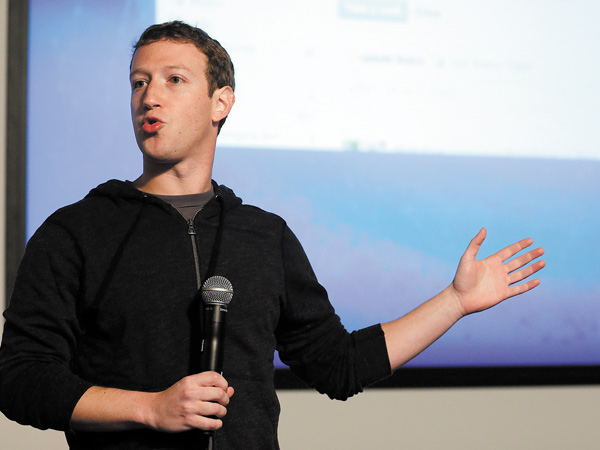Tech industry, labor spar on immigration


Facebook CEO Mark Zuckerberg speaks at Facebook headquarters in Menlo Park, Calif. The expansion of H-1B visas is considered the first major victory for Zuckerberg’s new nonprofit lobbying organization, FWD.us, which receives financial backing from such big tech names as Bill Gates of Microsoft, Reid Hoffman of LinkedIn and Napster pioneer Sean Parker.
Associated Press
WASHINGTON
To the U.S. technology industry, there’s a dramatic shortfall in the number of Americans skilled in computer programming and engineering that is hampering business. To unions and some Democrats, it’s more sinister: The push by Facebook’s Mark Zuckerberg to expand the number of visas for high-tech foreign workers is an attempt to dilute a lucrative job market with cheap, indentured labor.
The answer is somewhere in between, depending as much on new technologies and the U.S. education system’s ability to keep up as on the immigration law itself. But the sliver of computer-related jobs inside the U.S. that might be designated for foreigners — fewer than 200,000 out of 6 million — has been enough to strain a bipartisan deal in the Senate on immigration reform, showcase the power of big labor and splinter a once-chummy group of elite tech leaders hoping to make inroads in Washington.
“A lot of people agree that employers should have access to [highly trained] immigrants — that they are a benefit to the country, and we are a country of immigrants,” said B. Lindsay Lowell, director of policy studies at Georgetown University’s Institute for the Study of International Migration. “I think the question is how much of a good thing is good.”
The Senate immigration bill — the result of months of quiet negotiations among eight influential senators — is on track to nearly double the number of highly skilled foreign workers allowed to work in the U.S. under what’s called an H-1B visa, from 65,000 to 110,000. The number of visas could climb as high as 180,000 depending on the number of applications received and the unemployment rate.
The Senate Judiciary Committee had planned to take up the portion of the bill relating to H-1B visas on Thursday, paving the way for an eventual floor vote and setting the tone for debate in the House. But the committee postponed action until next week as negotiations take place behind the scenes.
The expansion of H-1B visas is considered the first major victory for Zuckerberg’s new nonprofit lobbying organization, FWD.us, which receives financial backing from such big tech names as Bill Gates of Microsoft, Reid Hoffman of LinkedIn and Napster pioneer Sean Parker.
 43
43
